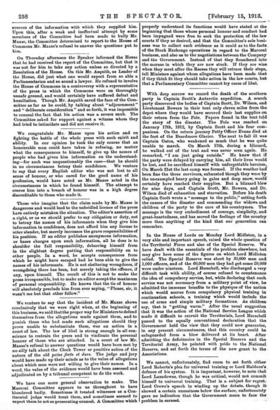Those who imagine that the claim made by Mr. Maxse
is dangerous and would lead to the unbridled licence of the press have entirely mistaken the situation. The editor's assertion of a right, or as we should prefer to say obligation or duty, not to betray the names of his informants when they give him information in confidence, does not afford him any license to utter slander, but merely increases the grave responsibilities of his position. If an editor publishes anonymous information, or bases charges upon such information, all he does is to shoulder the full responsibility, debarring himself from in the slightest degree putting that responsibility on to other people. In a word, he accepts consequences from which be might have escaped had be been able to give the names of his informants. He is not sheltering wrongdoers, if wrongdoing there has been, but merely taking the offence, if any, upon himself. The result of this is not to make the press irresponsible, but to make an editor accept the maximum of personal responsibility. He knows that the tie of honour will absolutely preclude him from ever saying, "Please, sir, it wasn't me but that other fellow."










































 Previous page
Previous page